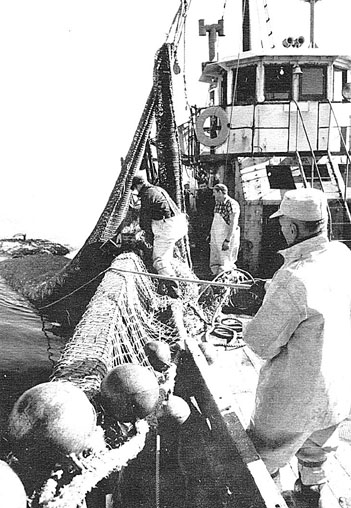|
In 1969, the Congressionally authorized Stratton Commission submitted a report that changed the way America managed its marine resources. The Stratton Commission led to the creation of the National Oceanic and Atmospheric Administration (NOAA), and passage of the Magnuson Stevens Fisheries Conservation Act and the Coastal Zone Management Act, all of which have had a profound effect on how we do business on and around the water.
Stratton managed to articulate American's changing view of the oceans at a time when Russian traw-lers could sometimes be seen from mid-Atlantic beaches, and Rachel Carson's book Silent Spring, described how toxins such as PCBs disrupted the reproductive capacity of birds and fish. For three decades Stratton has guided regulatory policy, even the Sustainable Fisheries Act (SFA) of 1996, which set standards for fisheries management. But implementation of SFA focused on unobtainable biological goals and devolved into endless allocation battles that are being settled in the courts.
|
 |
|
Now, for the first time in over thirty years, not one, but two high level commissions hope to replicate Stratton's formulation of a cohesive view on marine resource management, but in a way that addresses current problems. The first com-mission was established through the Oceans Act of 2000. Passed at the end of Clinton's term, the
|
legislation called for the formation of a President's Commission on Ocean Policy.
In late 2000 however, when the passage of the act seemed in doubt, the Pew Charitable Trusts established its own commission with a 4.5 million dollar endowment. The Pew Commission had already held five of seven scheduled meetings,
continue
|
|

